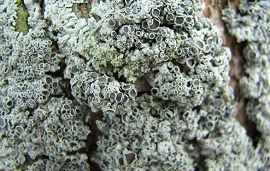Mold is one of the most frustrating potential problems for any homeowner. It is not only persistent, but the spores are very small and can be easily spread. Mold is more than simply an aesthetic problem in your home, as it can also be hazardous to health.
Mold loves moist conditions, so unless potentially damp areas in your home, such as laundry rooms and bathrooms, are properly ventilated, there is a risk it can develop. The key to dealing with mold is finding and eradicating any signs of patches of mold before they take hold and develop into a colony.
Mold spores and particles can easily break away from a mold colony to enter the air. This means that eventually they will be drawn into your HVAC system and could be distributed throughout your entire house. Once the particles are airborne, they have the potential to settle anywhere to start a new mold colony, or they could be inhaled and potentially cause respiratory issues.
In simple terms, any presence of mold in a home is a risk to health. This means that any mold spores need to be controlled as much as possible. Fortunately, there are many types of air filter to help you.
Mold Trapping Filters:
One positive is that many types of mold spore are fairly large in relative terms. This means that a HEPA filter installed into your air conditioner can easily remove them from your air. Mold spores are usually less than 3 microns in size, so if you have a filter that has a MERV filter of 8, it is usually sufficient. Unfortunately, some spores can be smaller, and you may have some that are as tiny as 1.5 microns. So, if you have family members who have particularly sensitive respiratory systems or you simply want to be very vigilant, you may want to consider an air filter that has a MERV rating higher than 12.
Other Mold Fighting Options:
If you have noticed a problem with mold in your home or you are concerned about asthmatics or allergy sufferers in your home, you may want to consider other options. A UV light can make a good option. This type of device can be fitted into your HVAC system, and they emit low levels of UV radiation. While these levels of UV are completely safe for humans and pets, they can kill or neutralize bacteria, pathogens and other microorganisms including the mold spore. The main advantage of installing a UV system is that you can minimize the risk of mold developing inside your HVAC system. Although a filter can trap mold spores, it may provide optimal conditions for the mold to continue developing. This means that if you are not diligent about regularly changing your air filters, there is a risk that the spores will be released back into the circulating air when the filter becomes clogged.
A UV device can provide an additional layer of protection so that any spores that may remain inside your ducts are neutralized.

